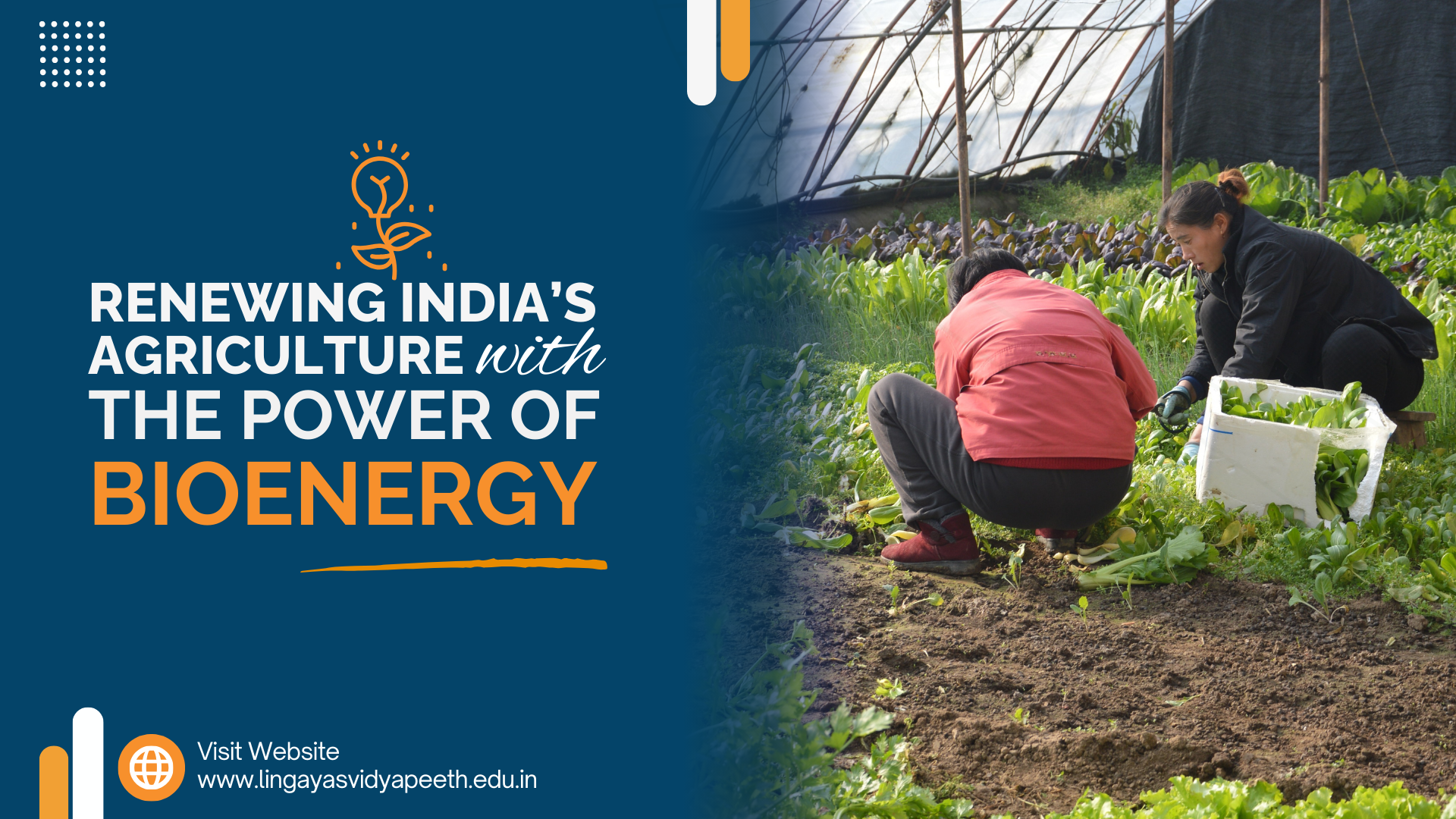Home » Bioenergy and Agriculture in India: A Sustainable Synergy

India, with its massive agricultural lands and growing energy demands, presents a unique opportunity for the development of bioenergy. This sustainable energy source, obtained from biomass, provides a promising solution to the country’s energy scarcity while also contributing to rural development and environmental sustainability.
What is Bioenergy?
Bioenergy is a type of renewable energy produced from biomass, which involves any organic material derived from living organisms. Common sources of biomass in India include agricultural residues (such as crop stalks, rice husk, and sugarcane bagasse), forest residues, and energy crops.
The Potential of Bioenergy in India
India possesses huge potential for bioenergy production due to various factors:
Types of Bioenergy in India
Several types of bioenergy technologies are being explored and implemented in India:
Challenges and Opportunities
Despite its potential, the development of bioenergy in India faces several challenges:
To overcome these obstacles and realize the full potential of bioenergy in India, different strategies can be adopted:
Conclusion
Bioenergy offers a promising solution to India’s energy challenges while promoting sustainable development and environmental protection. By addressing the challenges and capitalizing on the opportunities, India can harness the power of bioenergy to create a more sustainable and energy-secure future.
Do you wish to pursue an BSc in Agriculture? Are Looking one of the top university in Delhi NCR for students who wish to pursue a BSc Agriculture? Lingaya’s Vidyapeeth is best colleges in Delhi NCR for BSc Agriculture that provides students with practical training, research opportunities, and industry exposure to meet the challenges of modern agriculture. Enrol at Lingaya’s Vidyapeeth today to advance your agricultural career!
From
Dr. Manjeet Kumar
Assistant Professor
School of Agriculture
Lingaya’s Vidyapeeth
Best Agriculture Colleges in Delhi NCR
RECENT POSTS
CATEGORIES
TAGS
Agriculture Agriculture future AI Architecture artificial intelligence BA English BA Psychology BTech CSE BTech Engineering Business management career Career-Specific Education career guide Career Opportunities career option career scope Civil engineering commerce and management Computer Science Computer science engineering Data science degree education Engineering Engineering students English Literature english program Exam tips Fashion Design Fashion design course Higher Education Journalism journalism and mass communication law Law career Machine Learning MA Psychology Master degree mathematics MBA Mechanical Engineering Pharmacy Psychology Research and Development students
University Address: Nachauli, Jasana Road, Faridabad, Haryana
Toll Free: 1800-120-4613
Mobile : 8447744303 | 8447744304 | 8447744306 | 8447744309
Address: C-72, Second Floor, Shivalik, Near Malviya Nagar,
Above HDFC Bank, New Delhi 110017
Ph.No. - 011-46570515 / 45138169 / 41755703 / +91-7303152412
Jagmani Kutir, Ground Floor, Road No-1, Rajeev Nagar,
Near Darbar Marriage Hall, Patna-800024, Bihar
Contact No: 9818352069/8130120095
Mail: [email protected]
Copyrights © 1998 - 2025 Lingaya's Vidyapeeth (Deemed To Be University). All rights reserved.
It is important to note that the following email IDs and domains are fraudulent and do not belong to our university.
LV only conducts physical/online verification of any document related to examination on the following email id: